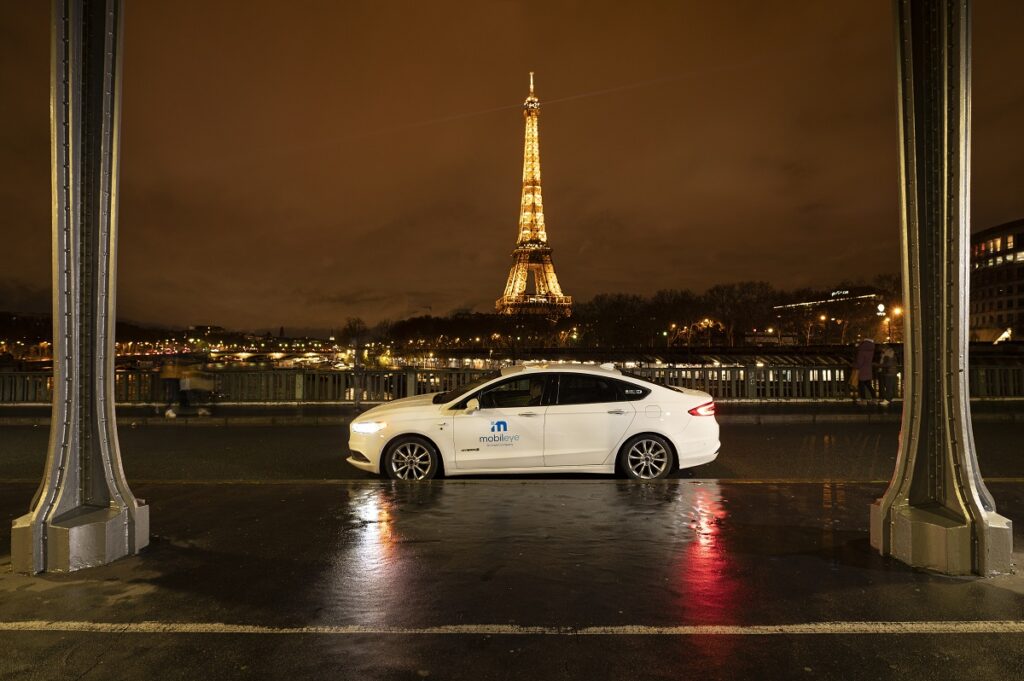Shares in Mobileye are to be traded from next week in a move that values the company at just under $16 billion – a fraction of the $50 billion owners Intel had hoped for last year.
Intel, the US semiconductor chip giant, paid $15.3 billion for the automotive startup in 2017. It was, at the time, Israel’s largest ever buyout.
But today’s valuation, based on the initial public offering (IPO) next week, is only marginally higher. Intel will sell far fewer shares than originally planned, and at a lower price per share (between $18 and $20).
Intel announced earlier this year that it was delaying the Mobileye IPO, with a $50 billion valuation, because of adverse market conditions.
When Mobileye was introduced on the New York Stock Exchange in 2014, it sold 35.6 million shares at $25 apiece, raising $890 million.
The company was founded in Jerusalem by Prof Amnon Shashua and Ziv Aviram in 1999, developing autonomous driving technologies and advanced driver-assistance systems.
The decision to sell shares at a lower price may be designed to generate interest in Mobileye’s stock once it starts trading – which will lead to an increase in its price and the value of the company.
But it could also be a sign of a potential recession. The IPO has significantly cooled as interest rates have risen. The Nasdaq Composite, almost all the stocks listed on its stock exchange, is down more than 30 per cent so far this year.
Auto-tech companies have been losing value in recent years on the stock exchange. Crunchbase, a platform that shares business information about private and public companies, recently conducted an analysis of 14 of these companies that went public in the last two years, and found an average decline of over 80 per cent of initial valuation.
Intel expects there to be 796.26 million shares of Mobileye that can be sold. It aims to raise as much as $820 million which it will use for working capital and corporate purposes.
Related posts

Israeli AI Safety Tool Among TIME’S Best Inventions For 2024

TAU Team Discovers Mechanism To Eliminate Cancerous Tumors

Ashdod Port Investing In Startups As Part Of Innovation Strategy




Facebook comments